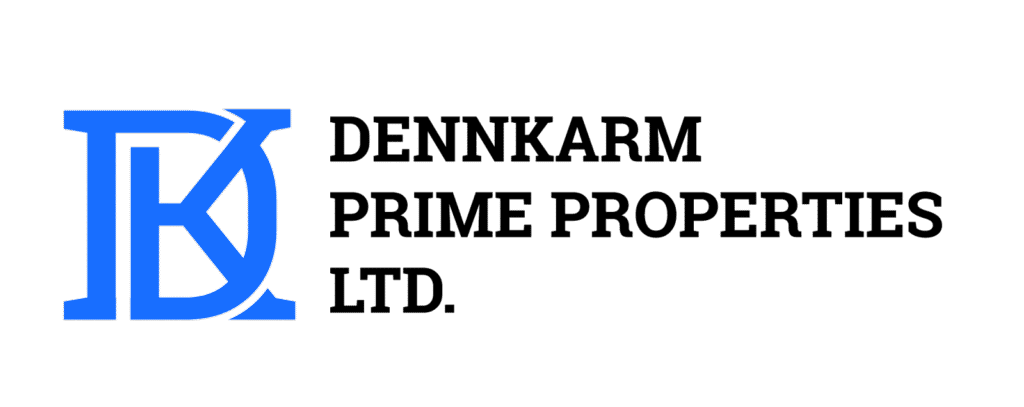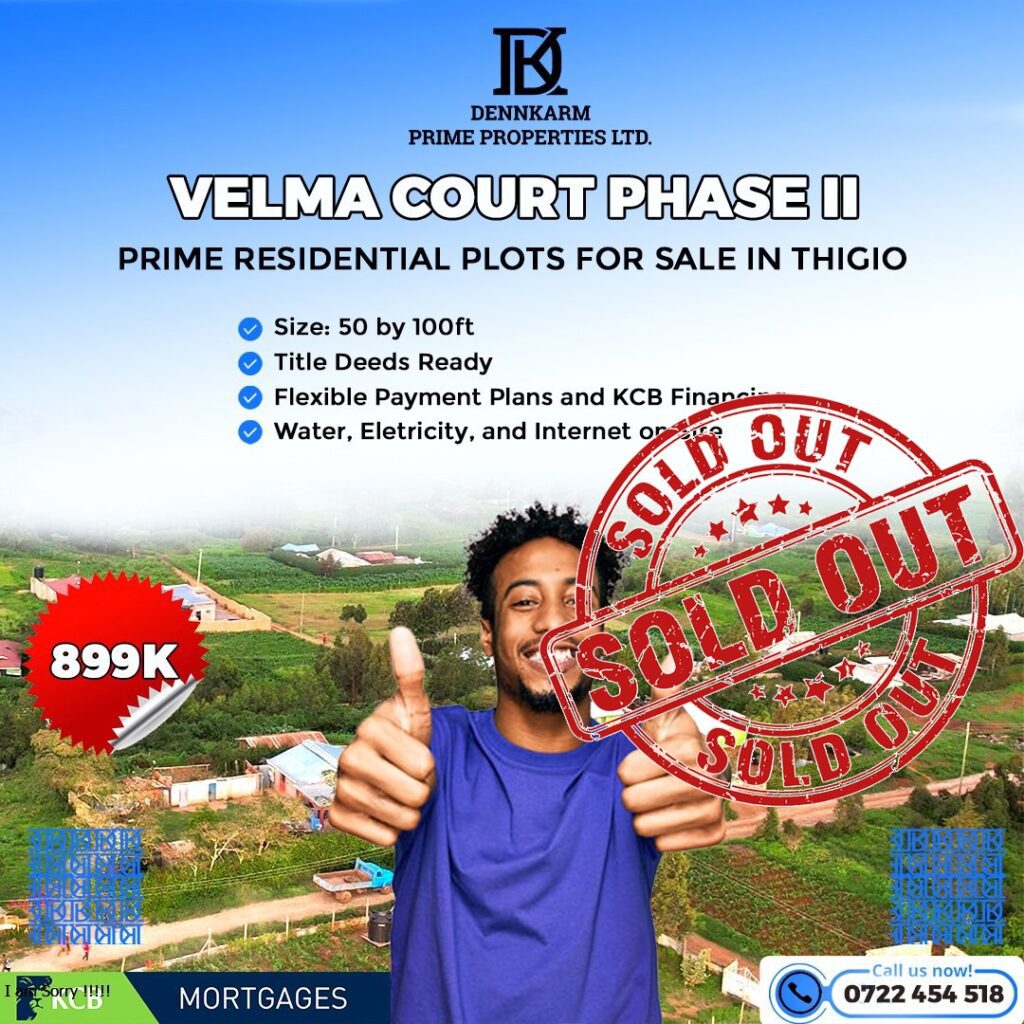
The future of Real Estate Investments in Kenya is no longer just about location and price; it’s about sustainability. As climate change becomes a tangible reality, investors and developers are realizing that “green” is not just a trend—it’s a smart, profitable, and responsible way to build wealth. This shift goes beyond simply installing a solar panel; it involves a holistic approach to land use and development that minimizes environmental impact while maximizing long-term value.
This article explores the principles of sustainable real estate development, highlighting why it’s the most lucrative path for today’s investor. We will delve into the practical strategies for creating green projects, the legal framework that supports them, and how a trusted partner like Dennkarm Prime Properties is leading the charge with sustainable plots in a prime location like Thigio in Kikuyu.
Table of Contents
- What is Sustainable Real Estate? The Principles of Green Development
- The Financial and Social Benefits of a Sustainable Investment
- From Design to Development: Practical Steps for a Green Project
- The Legal Framework: Navigating NEMA and County Regulations
- Why Thigio in Kikuyu is a Hub for Sustainable Development
- How Dennkarm Prime Properties Paves the Way for Sustainable Ownership
- Conclusion: Building a Greener, More Profitable Future
1. What is Sustainable Real Estate? The Principles of Green Development

Sustainable real estate development is a holistic approach to building and land management that seeks to create properties that are environmentally responsible, resource-efficient, and beneficial to the community. It’s an investment strategy that looks beyond short-term gains to the long-term health of the planet and your finances. In Kenya, this concept is built on a few core principles:
- Energy Efficiency & Renewable Power: This is a cornerstone of green development. It involves designing structures that maximize natural light and ventilation (passive design), reducing the need for artificial cooling and heating. It also includes the integration of renewable energy sources, such as solar panels for electricity generation and solar water heaters, to significantly lower utility bills.
- Water Conservation & Management: Water is a precious resource in Kenya. Sustainable projects incorporate rainwater harvesting systems to collect and store water for non-potable uses like gardening and toilet flushing. Greywater recycling systems and the use of low-flow fixtures also play a crucial role in reducing water consumption.
- Sustainable Building Materials: The choice of materials has a massive environmental footprint. A green approach prioritizes the use of locally sourced materials to reduce transportation emissions, recycled materials, and those that have a low embodied energy (requiring less energy to produce).
- Waste Management: Sustainable projects implement robust waste management systems from the construction phase to daily use. This includes sorting waste for recycling, composting organic waste, and using technologies like bio-digesters to generate clean cooking gas.
- Biodiversity & Green Spaces: Green land development emphasizes preserving existing natural features and integrating green spaces, such as parks, community gardens, and even small forests. This promotes biodiversity and creates healthier, more pleasant living environments for residents.
2. The Financial and Social Benefits of a Sustainable Investment
While the environmental benefits of sustainable projects are clear, the financial rewards for Real Estate Investments in Kenya are equally compelling.
- Higher Property Value: Sustainable properties are in high demand and often command a higher market value. Eco-conscious buyers and tenants are willing to pay a premium for a home or office that is not only kind to the environment but also reduces their operational costs.
- Long-Term Cost Savings: The initial investment in green features pays off handsomely over time. Features like solar power, rainwater harvesting, and energy-efficient appliances drastically reduce monthly utility bills, offering a significant return on investment.
- Enhanced Marketability: A sustainable property stands out in a crowded market. Green certifications, such as EDGE or LEED, provide a stamp of approval that attracts environmentally conscious individuals and companies, making the property easier to sell or lease.
- Social Responsibility: Beyond the financial gains, investing in sustainable projects allows you to contribute to a better future. You help conserve natural resources, reduce your carbon footprint, and create healthier communities. This positive impact builds trust and goodwill in the market.
3. From Design to Development: Practical Steps for a Green Project
Developing a sustainable project requires careful planning and a commitment to green principles from the very beginning. Here are some actionable steps for your next Real Estate Investment in Kenya.
- Choose the Right Land: The sustainability of your project begins with the land itself. A good “green” plot is one that can accommodate sustainable features, is not in an ecologically sensitive area, and is well-connected to existing infrastructure to minimize the need for new road or utility construction.
- Incorporate Passive Design: Before you even think about technology, optimize the building’s orientation to the sun and wind. Maximize natural light with large windows and use strategic shading to keep the interior cool.
- Implement Renewable Energy Solutions: Solar power is a fantastic investment in Kenya, a country blessed with abundant sunlight. Install solar panels to generate electricity and solar water heaters to reduce reliance on the grid.
- Focus on Water Conservation: Design your project to include a rainwater harvesting system, use water-efficient toilets and faucets, and plan for drought-resistant landscaping that requires minimal irrigation.
- Use Eco-Friendly Materials: During construction, choose materials like compressed earth blocks, sustainable timber, or low-VOC paints. Source as many materials as you can locally to reduce the carbon footprint of transportation.

4. The Legal Framework: Navigating NEMA and County Regulations
Kenya’s government is increasingly prioritizing sustainable development, and a legal framework is in place to support it. The National Environment Management Authority (NEMA) is the key body that ensures all projects comply with environmental standards.
- Environmental Impact Assessment (EIA): Every significant development project in Kenya is required to undergo an Environmental Impact Assessment (EIA) before a NEMA license can be issued. The EIA is a comprehensive report that identifies potential environmental impacts and proposes mitigation measures.
- NEMA Regulations: NEMA enforces a range of regulations covering everything from waste management and water quality to air pollution and noise. Adhering to these standards is not only a legal requirement but also a crucial part of a truly sustainable project.
- County Government Policies: County governments, such as Kiambu County (where Thigio in Kikuyu is located), also have their own regulations on land use and development. It’s essential to ensure your project complies with both national and county-level rules.
5. Why Thigio in Kikuyu is a Hub for Sustainable Development
Thigio in Kikuyu is not just an investment hotspot due to its proximity to Nairobi; its natural and strategic attributes make it an ideal location for sustainable Real Estate Investments.
- Ideal Climate and Terrain: Thigio’s climate is well-suited for passive design, with good sunlight for solar power and a landscape that is favorable for rainwater harvesting.
- Proximity to Urban Amenities: Investing in an area close to existing infrastructure reduces the environmental impact associated with developing new roads and utilities.
- Rapid Development: As a rapidly growing area, Thigio provides a blank slate for developers to implement sustainable principles from the ground up, rather than retrofitting older structures. This is a unique opportunity to build a truly green community.
- Dennkarm Prime Properties’ Commitment:** Dennkarm Prime Properties is committed to providing plots that are not just profitable but also ideal for sustainable development. They conduct thorough due diligence to ensure the land is suitable for green projects, giving their clients a strong foundation for a responsible investment.
6. How Dennkarm Prime Properties Paves the Way for Sustainable Ownership
Dennkarm Prime Properties understands that sustainable development is the future of Kenya‘s real estate market. The company has integrated this principle into its core business model.
- Pre-Vetted Plots: The plots offered by Dennkarm Prime Properties in Thigio in Kikuyu are meticulously selected to ensure they are suitable for sustainable projects. Their team considers factors like soil quality, topography, and access to existing infrastructure to minimize environmental impact.
- Expert Guidance: Dennkarm Prime Properties provides its clients with more than just land. They offer expert advice on how to get started with sustainable projects, from recommending green building architects to assisting with NEMA compliance.
- Community-Oriented Vision: The company’s vision for Thigio is to foster a community of responsible investors who build a harmonious and eco-friendly living environment. This ensures that your investment not only grows in value but also contributes positively to the area’s development.
7. Conclusion: Building a Greener, More Profitable Future
Sustainable real estate is no longer a niche market; it’s a fundamental shift in how we build and invest. By adopting green principles, you can secure a long-term, profitable Real Estate Investment that also helps protect the environment for future generations. The opportunities are immense, and with the right partner, like Dennkarm Prime Properties, your sustainable investment journey in Kenya can be both secure and rewarding.
More Information
- National Environment Management Authority (NEMA): The official body that governs environmental regulations and issues EIA licenses in Kenya.
- Kenya Green Building Society (KGBS): A local organization that promotes and certifies green building projects in Kenya.
- The Land Act, 2012: Provides a legal framework for land management, including environmental conservation.
- The Water Act, 2016: Governs the management of water resources in Kenya, including rainwater harvesting.
- Dennkarm Prime Properties Blog: For more insights on Real Estate Investments and property ownership in Kenya.
- 🔗 [Link to Dennkarm Prime Properties Blog]
Call to Action
Build a legacy that grows in value while preserving the environment. Dennkarm Prime Properties offers prime, pre-vetted plots in Thigio in Kikuyu that are ideal for your next sustainable investment.
Contact us today to get started on your green property journey!
Dennkarm Prime Properties Contact Details:
- Phone/WhatsApp: +254-722-45-45-18 or +254-101-45-45-00
- Email: info@dennkarmproperties.com / sales@dennkarmproperties.com
- Office Address: 3rd Floor (Room 301), Muchane Plaza, Kikuyu
- Website: dennkarmproperties.com




